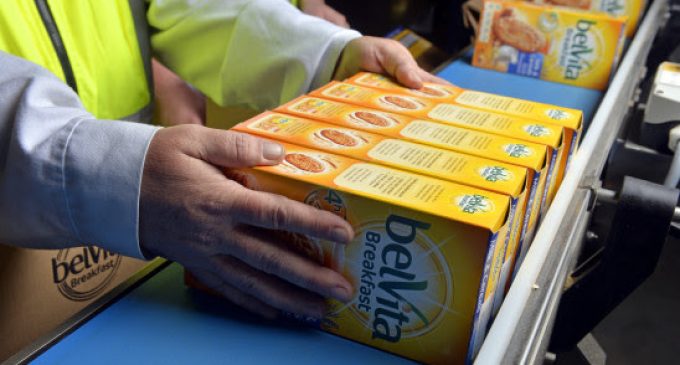Mondelēz International Expands Its Sustainable Wheat Program to Cover 100% of European Biscuits By 2020

Mondelēz International has announced its ambition to expand the Harmony program, the company’s sustainable wheat sourcing initiative, to cover 100 percent of its biscuit brands in the European Union by 2022, up from 60 percent of the company’s biscuit production in EU last year.
“European consumers increasingly equate high-quality products with sustainable production. They’re aware of the impact of their food choices on the environment and have high expectations of manufacturers to take their share of responsibility,” says Hubert Weber, Executive Vice President and President Europe. “As Europe’s largest biscuit baker, we can play a role in tackling challenges like climate change and resource shortages by promoting sustainable farming practices and improving biodiversity in our supply chain. In doing so, we contribute to creating a fairer, more transparent and integrated supply chain, in which good quality for consumers means a good impact on farmers and society.”
Today, the Harmony program involves 1,700 farmers, 13 millers and 21 cooperatives across six markets (Belgium, the Czech Republic, France, Italy, Poland and Spain), producing 177,000 tons of wheat for the company’s biscuit brands in 2017. That represents about 75 percent of Mondelēz International’s production of biscuits in Western Europe or 60 percent across EU for brands such as LU, Oro, LiGA and Fontaneda. Through the program expansion, annual production of wheat under the sustainable conditions set out by the Harmony charter would increase to over 280,000 tons by 2022. This would cover the volume of wheat needed to produce the company’s entire European biscuit portfolio, adding brands such as belVita, Cadbury biscuits and Barni.
A Decade of Sustainable Partnership
First launched 10 years ago in France, Harmony champions biodiversity and good environmental practices in wheat production in Europe. Co-created along the wheat supply chain with farmers, cooperatives and millers, the program seeks the commitment of partner farmers to follow sustainable practices in the cultivation and processing of wheat in return for a premium on their crop. Harmony farmers choose to conserve water, care for the soil, protect biodiversity and reduce carbon emissions, and stand to increase income by doing so.
Harmony was developed with the help of NGOs, agronomists, environmental specialists and research organizations. Harmony practices are audited every year to ensure they are respected. Underpinned by a charter of sustainable practices, the program seeks to:
- minimize the usage of pesticides and fertilizers by encouraging the selection of resilient wheat varieties and through crop rotation and care for soil
- avoid unnecessary treatments
- reduce carbon emissions, especially through the reduction of fertilizer use
- preserve the quality of water
- preserve local biodiversity: 3 percent of the wheat-growing fields are dedicated to flower borders or hedges that provide pollen and nectar all year long to pollinators
To date, the program has also led to a 20 percent reduction in pesticide use in Harmony fields, between 2009 and 2016[1]. Harmony farmers in Europe have also sown 1,026 hectares of flowers around the Harmony fields and close to 17 million bees and over 30 species of butterflies have been observed in Harmony fields.
“Harmony is much more than an agreed set of sustainable wheat farming practices,” said Romeo Lacerda, President Biscuits, Mondelez Europe. “It’s a movement that connects everyone involved in our supply chain with others seeking to increase the positive impact we can make on our environment and biodiversity. By bringing NGOs and farmers to work together, we can implement farming practices that are both effective and pragmatic. In doing so, we can act as a catalyst for positive change.”
Harmony key figures
- 1,700 farmers, 13 millers and 21 cooperatives in France, Spain, Poland, the Czech Republic, Belgium and Italy
- 39,000 hectares of Harmony wheat sown each year
- 177,000 tons of Harmony wheat harvested per year
- 1,026 hectares of flowers grown around the Harmony fields
- -20% of phytosanitary products used between 2009 and 2016 in the Harmony fields according to the Treatment Frequency Index in France
- 75% of the biscuits sold within Western Europe contain Harmony wheat, or 60% across the EU as a whole.
[1]Source: the TFI (Treatment Frequency Index) for the 2009-2016 Harmony campaigns, compared with the 2008 national average for wheat (French Ministry of Agriculture)

































